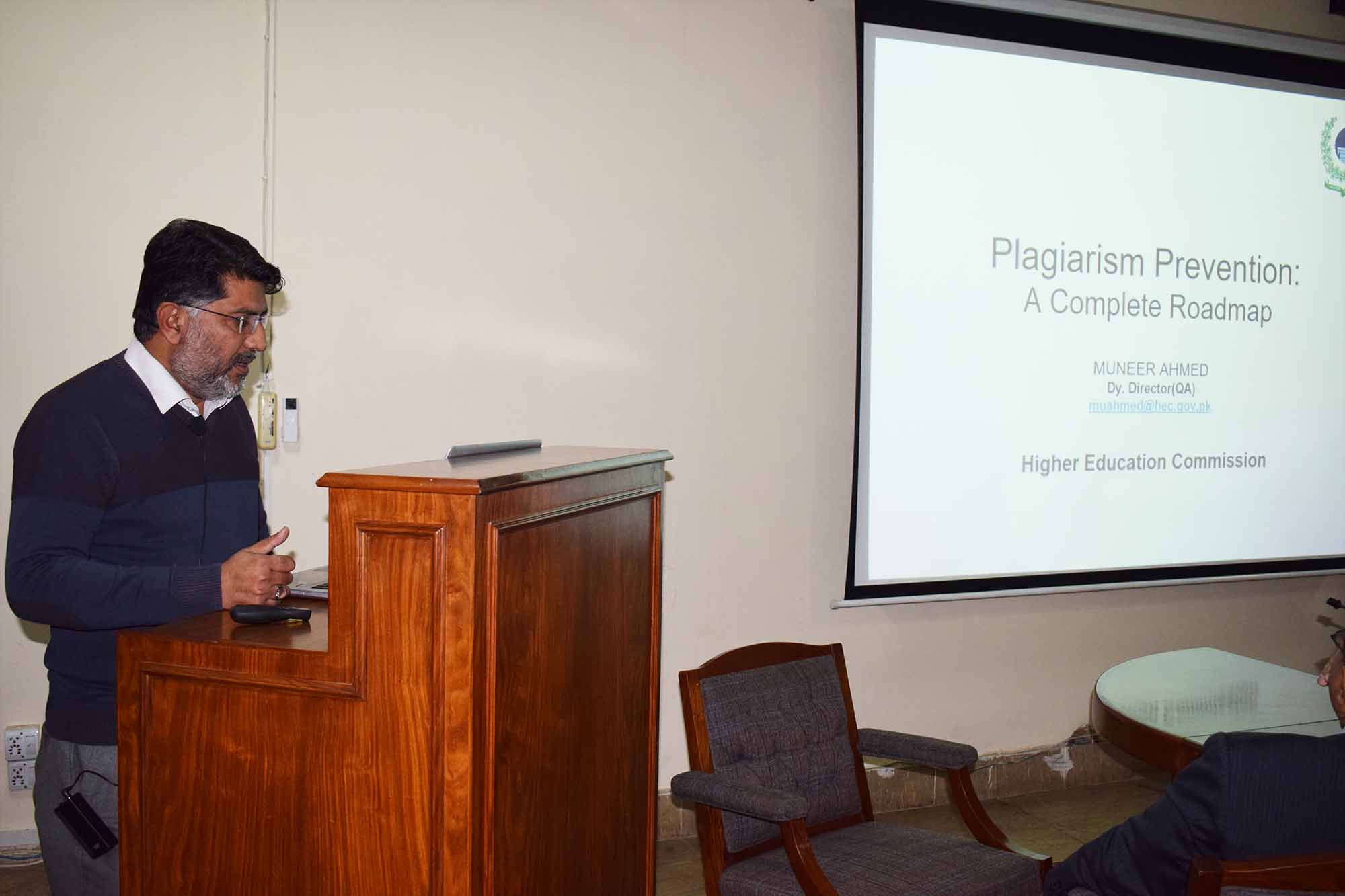
Plagiarism- ‘Purposefully taking credit for the work of another writer/researcher or scientist,’ or ‘an attempt to pass off someone’s ideas, opinions and phrasings as ones’ own may not be a law, but more of a standard of behavior that writers uphold, especially as researchers and academicians.”
A quality workshop was organized by the NUMS Quality Enhancement Cell (QEC) on February 12, 2019 to acquaint the faculty, postgraduate students, administrators, editors of Pakistan Armed Forces Medical Journal (PAFMJ) & Life and Science Journals of the increasing significance of inculcating the culture of originality in research work by learning methods to improve scientific writing skills, using turnitin.
Mr. Muneer Ahmed, Deputy Director Quality Assurance Division (QAD) of the Higher Education Pakistan’s national resource person was invited to educate the participants about plagiarism, improve their writing /referencing skills, and train them on the plagiarism detection software.
Furthermore, he emphasized on the difference between finding ‘Similarity’ and declaring ‘Plagiarism’ and shared with the audiences that although HEC provides guidelines yet all universities need to device their own course strategies for using plagiarism detection tools like Turnitin, ithenticate, EVE, Copyscape etc. He also warned the researchers of the freely available malware and stressed on using subscribed authentic sources like Turnitin given access to all faculty members through their universities by HEC Pakistan.
He explained the distinctive roles of ‘Administrators’ of Turnitin, ‘Instructors’ and ‘Plagiarism Prevention Roadmap’ chalked out by HEC. He concluded the session by apprising the audience that each university is responsible for the capacity building of students, and faculty by developing, Research Ethics, Plagiarism Policy, showing IT readiness, arranging meetings, workshops, conferences, laying down teaching/learning strategies, assessment design and most of all student centered learning.

.jpg)
.jpg)
.jpg)
.jpg)
.jpg)